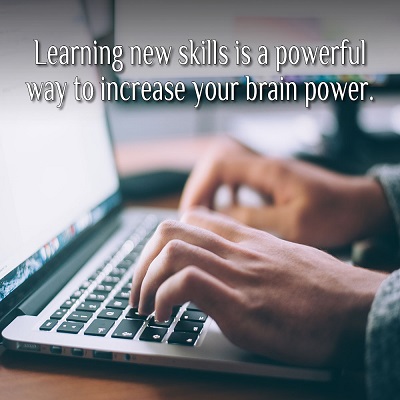 What happens to a pencil if you don’t sharpen it regularly? It becomes dull and blunt after a period of time. The same thing happens to our brain. If we don’t sharpen our brain often, our cognitive abilities become dull, just like the neglected pencil.
What happens to a pencil if you don’t sharpen it regularly? It becomes dull and blunt after a period of time. The same thing happens to our brain. If we don’t sharpen our brain often, our cognitive abilities become dull, just like the neglected pencil.
Our ability to retain information is one of the brain functions that become affected if we don’t exercise our mental capacities sufficiently. One study published in Psychological Science revealed that it is not enough to merely exercise our brain; we need to challenge it. According to the researcher Dr. Denise Park of the University of Texas, brain games and crossword puzzles are good, but they are not enough to really sharpen our cognition and fight neurodegenerative diseases, such as dementia.
Many of us certainly realize that puzzles and games can help improve our memory, and ultimately, our cognitive abilities. However, its benefits are still limited, as it can only help in some aspects of our working memory. A challenging task, such as learning a new skill, is much more beneficial in the long term.
Here are ways in which taking up a new challenge skill can help our memory and overall cognitive abilities:
Learning a New Skill Can Sharpen Our Memory
In a study by Dr. Park, 200 senior citizens were randomly assigned an activity ranging from digital photography to quilting. For three months, the participants engaged in their activity at least fifteen hours a week, after which they were given a battery of memory tests.
The participants’ scores revealed that their ability to retain information had improved significantly as compared to those who only did activities that are not necessarily mentally-challenging, such as watching a movie or playing easy games and puzzles. The improvement in the participants’ ability to remember details was so remarkable that even if they weren’t engaged in the activity anymore, their memory skills were maintained.
A Challenging Task Can Help Boost Cognitive Abilities
Taking up a new challenging hobby, learning a new skill, or even going back to school as adults can help boost cognitive abilities. Much like our physical muscles, the brain needs to work out, too, and challenging ourselves to think can stimulate new brain cell growth.
Adults, especially those who are in their older years, are encouraged to attend formal classes to continue being mentally-engaged. Going to a class to learn something new engages our cognitive skills, including visual comprehension, logic, reasoning, paying attention to details, and even our ability to retrieve information from both our short and long-term memory.
Not only will learning something new help you sharpen your mind, but it can also increase self-confidence and help maintain healthy interpersonal relationships. You’ll get to communicate with others more often and participate in stimulating discussions and conversations.
Learning a Challenging Skill Can Help Fight Cognitive Decline
Several studies have shown that learning a new skill will not only help improve memory and brain functions, but it can also help slow cognitive decline and even fight neurodegenerative diseases, such as dementia.
A study published in 2007 showed that being able to speak more than one language can improve an individual’s memory even in later years and can also delay early symptoms of dementia. Similar findings were shown in a 2014 study, wherein learning a second language in adulthood can help slow down the mental effects of aging.
So how does learning a challenging new skill help you slow down cognitive decline? Doctors explained that mentally-challenging tasks strengthen connections in the brain that contribute to better brain function.
Learning a new skill or taking up a new hobby doesn’t have to be formal and boring. Pick a task that you have always wanted to try but never really got a chance to do. Or it could also be something that is way out of your comfort zone. Learning a new instrument, making pottery, or learning a new type of dance are just some of the fun and mentally-challenging tasks that could keep you engaged.
You can also try going back to the classroom. More and more colleges and universities are offering uncredited classes to older adults. This will not only boost your memory and cognitive abilities, but it can also help you increase your social skills and contacts.
Being healthy does not just mean exercising our bodies. We also need to exercise our brains to make sure we are in tiptop shape – from our heads down to our toes.






